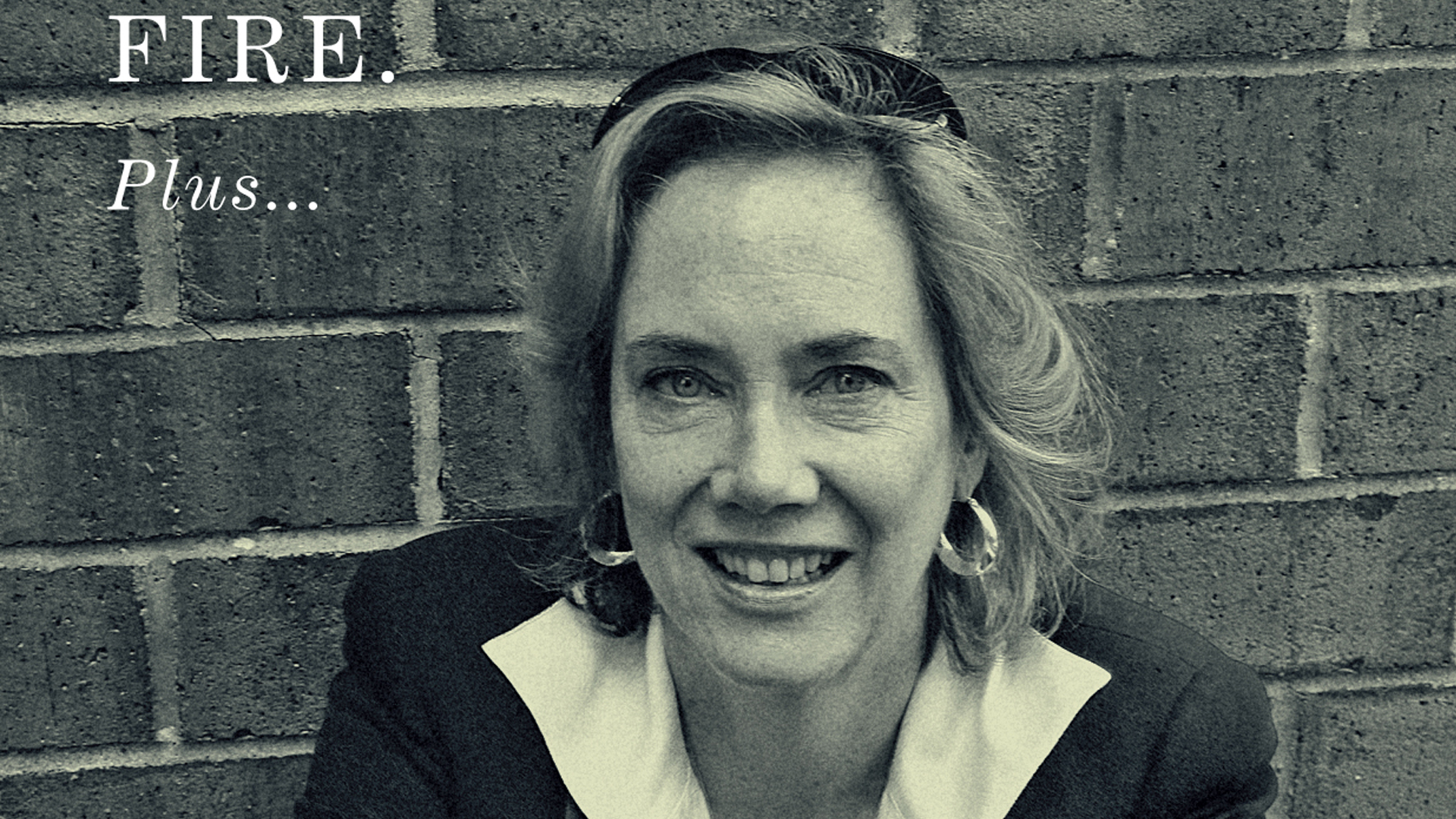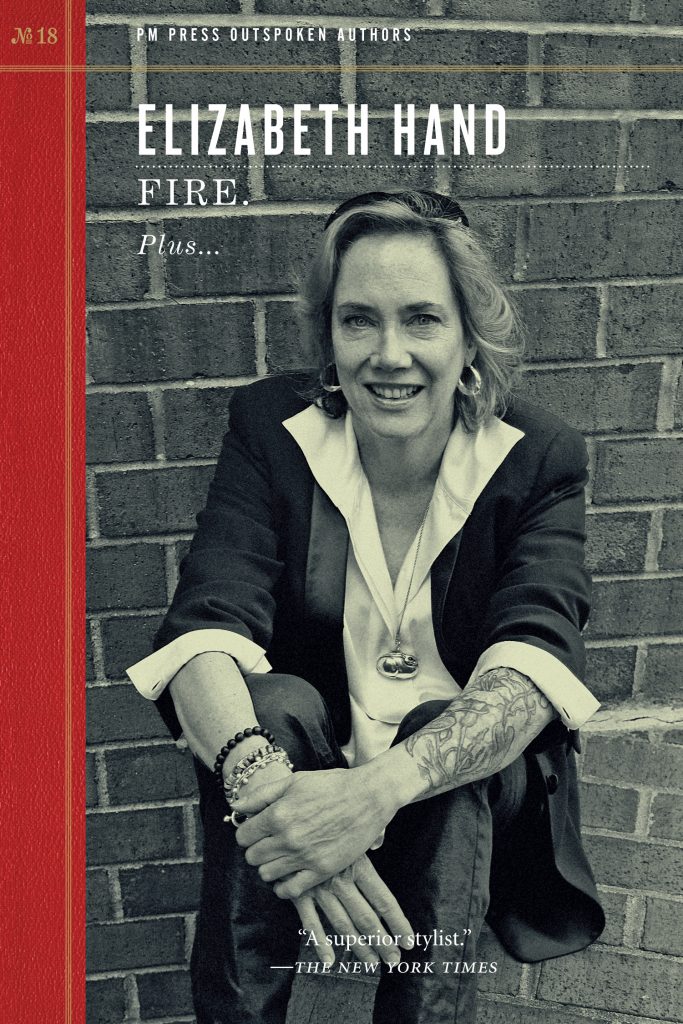By George Longenecker
Rain Taxi
Elizabeth Hand’s Fire., part of PM Press’s “Outspoken Authors Series,” is not easily categorized as fiction or nonfiction. The collection includes three short stories, a craft essay, two essays on writers, and an interview with the author. While this book is a good introduction to Hand—the author of nineteen novels and four collections of short stories—those unfamiliar with Hand might want to explore one of her collections, such as Saffron and Brimstone, to get the full flavor of her talent.
Hand is best known as a science fiction and fantasy writer, and has won the World Fan- tasy Award and Nebula Award. Apocalyptic and environmental themes are central to her fiction, however her writing has depth and mystery that, like this short book, defies cat- egorization. In “Beyond Belief: On Becoming a Writer,” she says she’s been inspired since childhood: “I decided to become a writer in the summer of 1962, when I was five years old. . . . First, however, I had to learn to read and write.” The essay is not only a good introduc- tion to her work, but might be inspirational for the aspiring writer. “Despite living ina real world that increasingly resembles that of one of my early dystopian novels,” Hand writes, “I consider myself a very lucky person.”
In the title story, “Fire.,” five stranded strang- ers are on a mountain top surrounded by a raging forest fire, a “firepocolypse.” “Every- body gather round. Hold hands. Whose turn is it?” Their focus group alternates between humor and grim reality. “I know, none of this is funny, but what else are we going to do? Food’s gone, enough water for what, another day? . . . Can people live on such a small amount of water?” Hand’s succinct stories leave the characters—and the reader—won- dering how they got into this disaster. “Yeah, I know it could be a goddam terrorist drone. But it also could be lightning. So it could, something could happen. Rain. It might hap- pen is all I’m saying.”
In Hand’s writing, anything can happen. “I’ve always wanted to believe in the existenceof that other, hidden reality. In my writing I try to . . . depict it in as realistic a fashion as possible,” she says in “Flying Squirrels in the Rafters,” in which she’s interviewed by Terry Bisson. She also reflects on her work with other writers in the Stonecoast MFA program in Maine.
The two other short stories in the col-lection both have hidden realities. “The Saffron Gatherers” is apocalyptic, with “the bridges trembling and shining like wires. One snapped then fell, another, miraculously, remained intact.” “Kronia,” written in the first person, takes us through alternate reali- ties in the protagonist’s life. Both stories are succinct and yet descriptively rich.
Fire. concludes with biographies of authors. “The Women Men Didn’t See” is “the story of a woman tragically born a half-century too soon,” Alice Sheldon, who wrote under the pseudonym James Tiptree, Jr. Hand claims her work “stands among the best short fiction of the late twentieth century.” One might say the same of Hand; this book is a fine introduction to her short fiction and her theories on the craft of writing.







